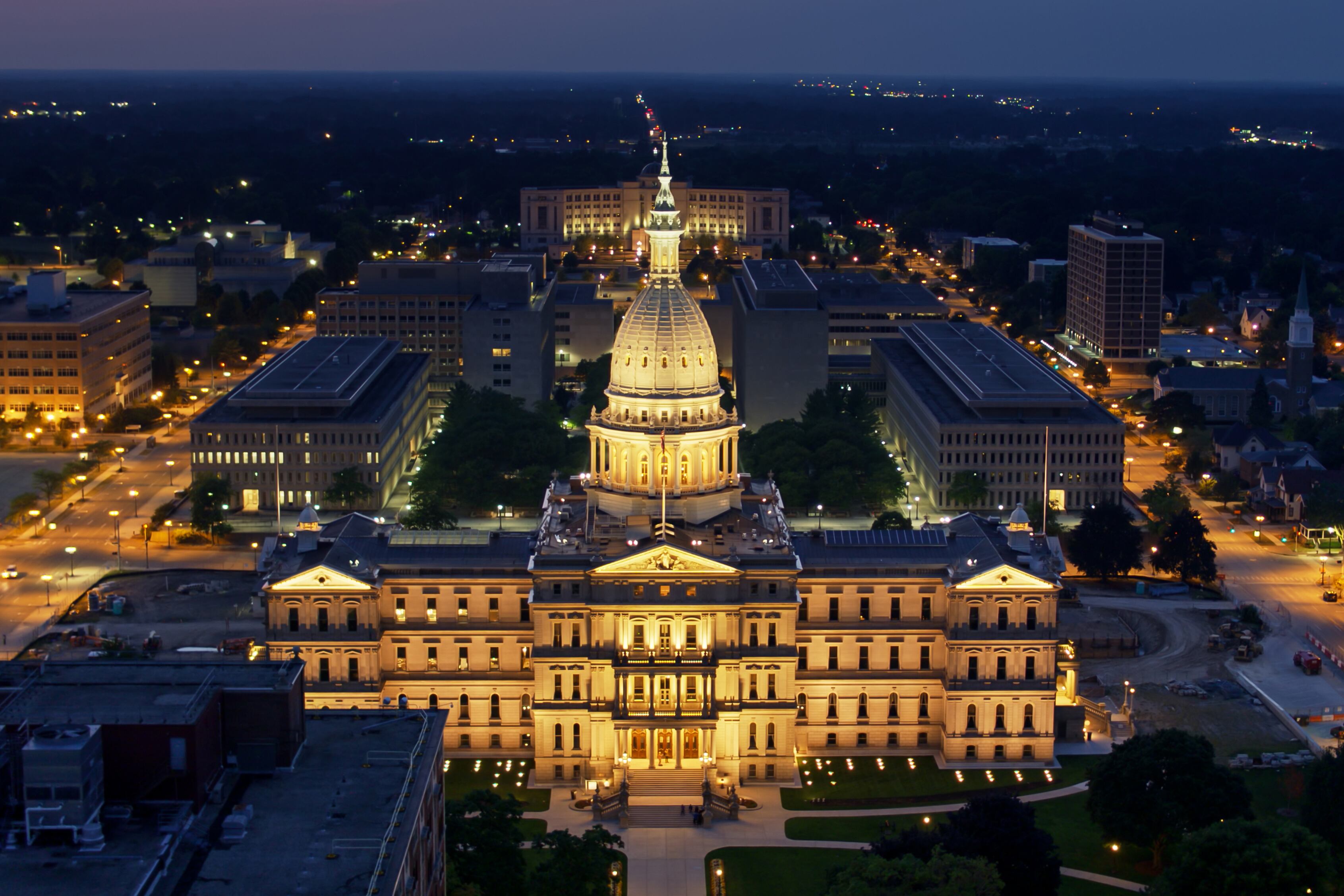Sign up for Chalkbeat Detroit’s free daily newsletter to keep up with the city’s public school system and Michigan education policy.
After a high-drama day in the legislature, Michigan Senate Democrats gave final approval Thursday to some charter school reform proposals.
The more substantial of the charter school reform bills are effectively dead, however, as the House abruptly ended its tumultuous lame duck session earlier in the day.
The four House bills the Senate approved will require charter schools to publicly post the names of their primary educational management organizations, or EMOs, and authorizing bodies. The information must be included in the schools’ promotional material, enrollment applications, on physical signage, and online. The legislation is now headed to the desk of Gov. Gretchen Whitmer, who is expected to sign the bills into law.
By 6 p.m. Thursday, the Senate had not yet taken up another House bill that would require charter schools to make average teacher salaries public.
Charter school reforms remained the last major education policy priority of Democrats in the lame duck session.
Last week, the Senate approved a package of bills that would restrict for-profit EMOs from selling or leasing property above market rates to the charter schools they run, require more oversight from authorizers, and make EMOs publicly post detailed audited financial disclosures.
Those bills were up for votes in the House.
Without a quorum — due to the protest absences of all Republicans and Rep. Karen Whitsett, a Detroit Democrat — the House failed to move any legislation forward in its last two days of session.
House Speaker Joe Tate, a Democrat from Detroit, issued a brief call of the House – an order for Michigan House Sergeants at Arms to bring absent members to the floor and bar the chamber doors.
The session ended an hour after that.
The House announced it would come back into session at 1:30 p.m. on New Year’s Eve.
However, House Speaker Pro Tem Laurie Pohutsky, a Democrat from Livonia, later told reporters the return will be a formality to officially end the session for the year.
In the Senate, state Sen. Sylvia Santana, a Democrat from Detroit, also skipped Wednesday’s session in protest. When she returned Thursday, the Senate began voting again.
Senate Democrats on Thursday also approved a bill that will require school districts to distribute information about safe gun storage to families. Survivors of school gun violence testified in support of the measure last week.
The Senate is tentatively scheduled to be in session Friday and Monday.
Several education bills are still on the table for final approval in the Senate, including:
- Legislation aimed at preventing violence in schools.
- A bill that would force schools to allow Indigenous students to wear traditional regalia to graduation ceremonies.
- A bill that would allow Detroit Public Schools to use its operating millage to pay its School Loan Revolving Fund debt.
The House’s dysfunction also appears to have killed bills that would have made attending kindergarten mandatory and completing the Free Application for Federal Student Aid a graduation requirement.
Hannah Dellinger covers K-12 education and state education policy for Chalkbeat Detroit. You can reach her at hdellinger@chalkbeat.org.





